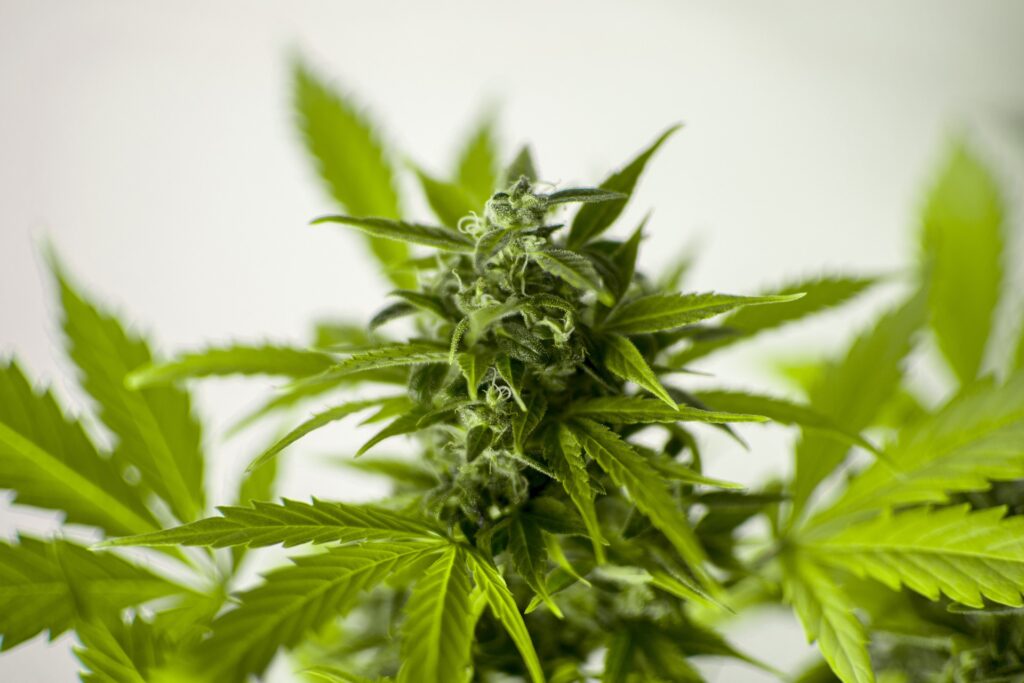Cannabis Legalization and its Impact on Society
Cannabis legalization is a hot topic across the globe, especially in the USA. Many people are wondering how this change affects everything from their local economy to the overall health of their community.
It’s a subject ripe with opinions, facts, and discussions about whether it’s good or bad for society.
One interesting fact is that as of now, several states have fully legalized cannabis for both medical and recreational use. This shift in legal status has sparked new industries, jobs, and debates.
Our article aims to explore these changes thoroughly. We will look at how legalized cannabis impacts our economy, social life, public opinion, and even future trends. Stay tuned for an enlightening read!
The History of Cannabis Legalization
The history of cannabis legalization in the US includes a detailed timeline of legislative changes at both federal and state levels. Current laws have significantly shifted from complete prohibition to varying degrees of decriminalization and regulation.
Timeline of cannabis legalization in the US
California made history in 1996 as the first state to legalize medical cannabis, sparking a movement that spread across the United States. Over the years, several states followed suit, each passing their own laws allowing the use of cannabis for medical purposes.
This shift marked a significant change in public opinion and set the stage for broader acceptance of cannabis.
The journey toward recreational marijuana legalization began with Colorado and Washington State leading the way in 2012. They broke new ground by permitting adults to use cannabis recreationally, opening dispensaries where people could legally purchase it.
Since then, numerous states have joined this wave of legalization, reshaping social norms and creating economic opportunities. The timeline reflects a growing trend towards decriminalization and broader societal acceptance of cannabis use.
Moving from this historical overview into exploring current federal and state laws reveals how these changes continue to influence various aspects of American life today.
Current federal and state laws
Transitioning from the timeline of cannabis legalization in the US, it is essential to understand the current federal and state laws surrounding cannabis. At present, a complex web of regulations exists across the country.
While some states have fully legalized cannabis for both medicinal and recreational use, at the federal level, marijuana remains classified as a Schedule I controlled substance under the Controlled Substances Act.
This conflicting landscape creates challenges for businesses operating within these states and significantly impacts various aspects such as taxation, banking services availability, and research opportunities.
The Impact of Cannabis Legalization on Society
Cannabis legalization has brought about significant economic benefits, including job opportunities and increased tax revenues. It has also led to social and cultural changes as well as shifts in public opinion regarding the use of cannabis.
Economic benefits
The legalization of cannabis brings significant economic benefits, including job creation and revenue generation. This emerging industry offers opportunities for employment across various sectors, such as cultivation, processing, retail, and ancillary services.
In addition to job opportunities, the legal sale of cannabis also contributes to tax revenues for state and local governments. As the market continues to expand, it provides a potential boost to peripheral industries like real estate and tourism.
Moreover, the regulated cannabis market could lead to reduced black-market activity and related criminality.
Social and cultural changes
Cannabis legalization has triggered several social and cultural changes. With the shift in attitudes towards cannabis, there is greater acceptance within communities, leading to a reevaluation of the societal stigmas associated with its use.
This shift has also sparked conversations about responsible consumption and how it fits into everyday life. Moreover, cannabis legalization has influenced popular culture and artistic expression, as evident in music, film, and fashion trends that embrace cannabis themes.
The evolving landscape around cannabis has also prompted changes in public dialogue surrounding drug policies and laws. As opinions continue to evolve on this topic, society is witnessing a significant transformation in perceptions related to psychoactive drugs and their place within modern culture.
Public opinion
Transitioning from the societal changes brought about by cannabis legalization, public opinion on the matter reflects a complex and ever-evolving landscape. People’s perspectives are influenced by a variety of factors, including personal beliefs, cultural norms, and exposure to information.
Society’s view on this topic is shaped by ongoing discussions regarding drug policy, social implications, and public health effects of cannabis legalization. This fluid exchange of opinions underpins the everchanging realm of drug legislation and its impact on communities.
Public opinion sways in response to ongoing debates around the legalizing marijuana impact, seeking more than just surface-level understanding. As individuals navigate through these complexities, they dive into tailored conversations towards unlocking the secrets behind weed legalization’s effects on their lives and communities.

Potential Challenges of Cannabis Legalization
Cannabis legalization poses challenges in regulation and oversight, addressing public health concerns, and managing the impact on the criminal justice system. These issues require careful consideration and proactive solutions to ensure a balanced approach to cannabis legalization.
Regulation and oversight
Regulation and oversight of the cannabis industry are critical aspects of managing its legalization. State and federal governments implement measures to control production, distribution, marketing, and sales.
This ensures that cannabis businesses adhere to specific standards such as quality control, testing requirements, labeling regulations, and taxation policies.
Authorities also establish licensing processes for growers, manufacturers, distributors, and retailers in order to maintain transparency within the market. Regulatory agencies enforce compliance with strict guidelines on security measures and prevent illegal activities such as black-market sales or underage purchases.
Moreover, ongoing monitoring is essential to address any emerging issues related to public safety or health concerns.
Public health concerns
Cannabis legalization raises public health concerns regarding increased cannabis use and its potential impact on overall health. The accessibility of legal cannabis may lead to higher rates of usage, particularly among adolescents, which could have implications for mental health and cognitive development.
Additionally, there are worries about the long-term effects of regular cannabis consumption on respiratory issues, as well as the potential for dependency and addiction. Policymakers face the challenge of implementing regulations that address these public health risks while balancing individual freedoms and societal impact.
Furthermore, there are apprehensions about the lack of standardized testing and labeling in the cannabis industry, which may result in consumer safety issues such as exposure to harmful contaminants or incorrect potency levels.
Impact on the criminal justice system
Cannabis legalization has had a significant impact on the criminal justice system. The reduction in arrests for cannabis-related offenses has resulted in decreased caseloads for law enforcement, leading to more resources available to address other crimes.
Additionally, it has lessened the burden on courts and correctional facilities, allowing them to focus on more serious offenses. Moreover, legalization has helped in reducing overall crime rates as police can now direct their attention toward addressing other public safety concerns.
Future Implications of Cannabis Legalization
The future implications of cannabis legalization include potential for continued growth and expansion, possible effects on other industries and markets, and international implications and global trends.
To learn more about the evolving landscape of cannabis legalization, keep reading.
Potential for continued growth and expansion
Cannabis legalization has the potential for continued growth and expansion, with industries associated with cannabis experiencing increased demand for cannabis products and services. As legislation evolves, the market is likely to expand beyond traditional consumer goods to include ancillary services such as marketing, packaging, and consulting.
The cannabis industry may also see advancements in technology and research, leading to new innovations that could drive further expansion.
The global impact of cannabis legalization could lead to international trade opportunities as more countries consider decriminalization or regulation of cannabis products. This growing acceptance may pave the way for partnerships between nations and open doors for investment in emerging markets related to cannabis cultivation, distribution, and sales.
Possible effects on other industries and markets
The potential for continued growth and expansion in the cannabis industry could have ripple effects on other industries and markets. As cannabis becomes more mainstream, we may see increased demand for ancillary products and services such as packaging, marketing, and security solutions.
Additionally, there may be shifts in consumer behavior that impact related industries like alcohol, pharmaceuticals, and wellness products. Businesses in these sectors will need to adapt their strategies to account for the changing landscape influenced by cannabis legalization.
Moreover, the legalization of cannabis can lead to new investment opportunities within financial markets. With the emergence of cannabis-related companies and products, investors may allocate resources differently based on market trends and performance indicators.
International implications and global trends
Cannabis legalization in the United States has sparked a global conversation about drug policy and its impact on society. As more countries consider or enact cannabis legislation, international implications are becoming increasingly significant.
This trend not only affects individual nations’ economies but also shapes global attitudes toward drug decriminalization and public health policies. The shift towards cannabis regulation may lead to reevaluations of punitive approaches to drugs, affecting social acceptance, public health impact, and crime reduction strategies worldwide.
Moreover, the ever-evolving landscape of legalized drugs will likely prompt international collaborations for navigating the complexities of cannabis regulation. As different nations tailor their approaches towards marijuana legislation, the realm of drug policy is poised for widespread changes that extend beyond borders.
Conclusion
Cannabis legalization has sparked economic growth, prompted cultural shifts, and influenced public opinion. Regulation and oversight remain essential for addressing public health concerns and mitigating the impact on the criminal justice system.
The future implications of continued growth and expansion in this area will extend to other industries, markets, and international trends. Applying practical approaches to cannabis legislation is crucial for leading us toward significant improvements in society.
It’s time to recognize the importance of navigating these complexities with tailored regulations that underpin an ever-evolving global landscape.


